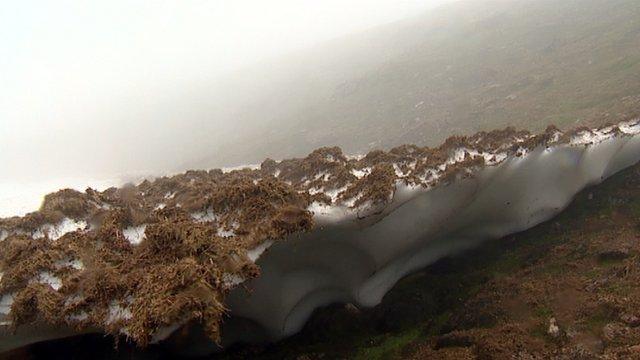Summer avalanche debris incredible, says snow expert
- Published
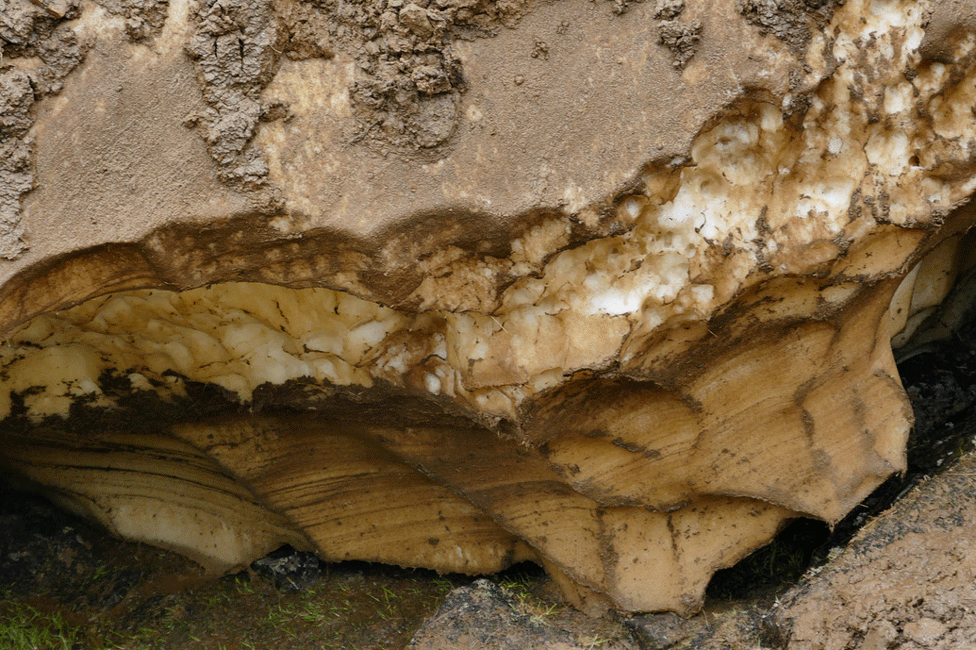
The snowy debris was found in the north west Highlands
What is believed to be debris from an avalanche that happened this summer has been discovered in the Highlands.
Iain Cameron, who studies and writes about snow, has examined the find on Sgurr na Lapaich, the highest of a remote range of mountains.
Describing the debris as an "incredible scene", Mr Cameron said the snow had survived because of a "protective jacket" of thick mud.
He said the avalanche may have happened in June.
A snow slide in summer would be rare.
Most of them happen between December and April, the months covered by Sportscotland Avalanche Information Service's avalanche hazard information reports for walkers, climbers and skiers.
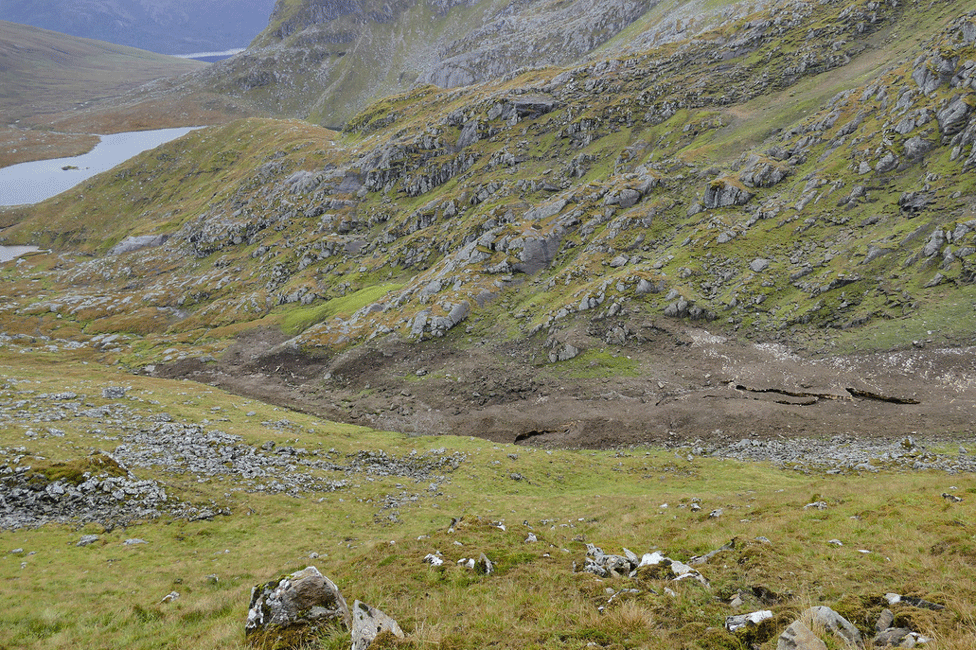
The mud-covered avalanche debris on Sgurr na Lapaich
Mr Cameron made his visit to Sgurr na Lapaich late last month following a tip-off from a mountaineer.
Sgurr na Lapaich and others in the range on the north side of Loch Mullardoch can be visible in good weather from Inverness.
Mr Cameron believes the avalanche debris could survive into the start of this coming winter.
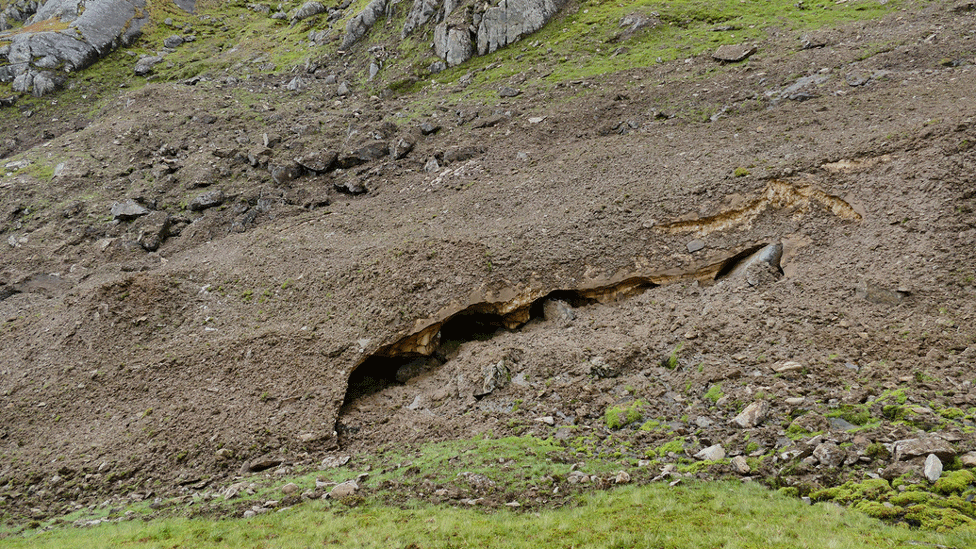
The snow is expected to survive into the start of this coming winter
This year, snow from last winter has survived in other parts of the Highlands.
On one Munro in Glen Coe a patch of snow has lasted the longest time in living memory, according to the area's ski resort.
The snow lies on Meall a'Bhuiridh, the location of Glencoe Mountain's Flypaper run ski run.
The resort's Andy Meldrum said: "This is the latest that snow has ever survived on Meall a'Bhuiridh since skiing began here in 1956.
"But some of our old timers here, guys in their 90s, say snow has never lasted this long."
A pocket of snow has also survived in the Fannichs range in Wester Ross.
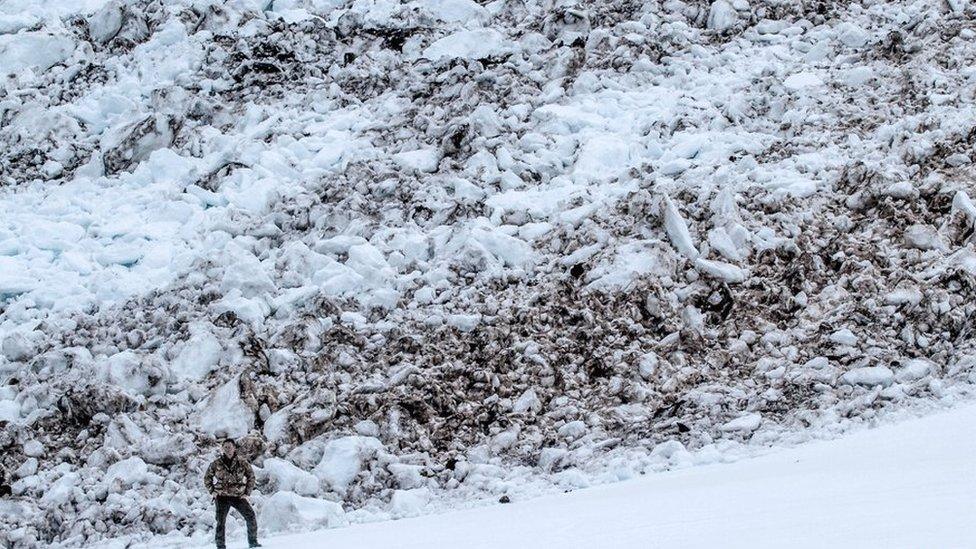
Avalanches in Scotland usually occur between December and April
- Published30 September 2015
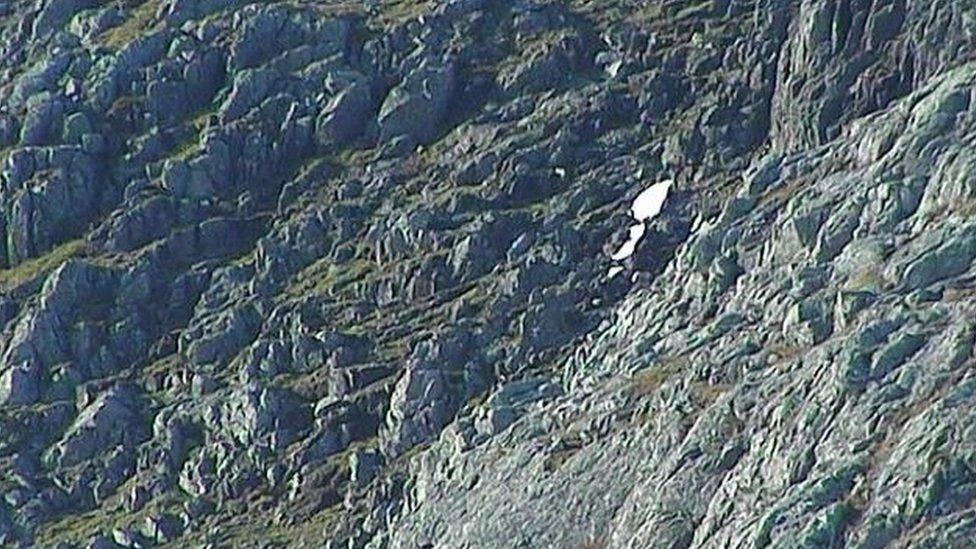
- Published20 July 2015
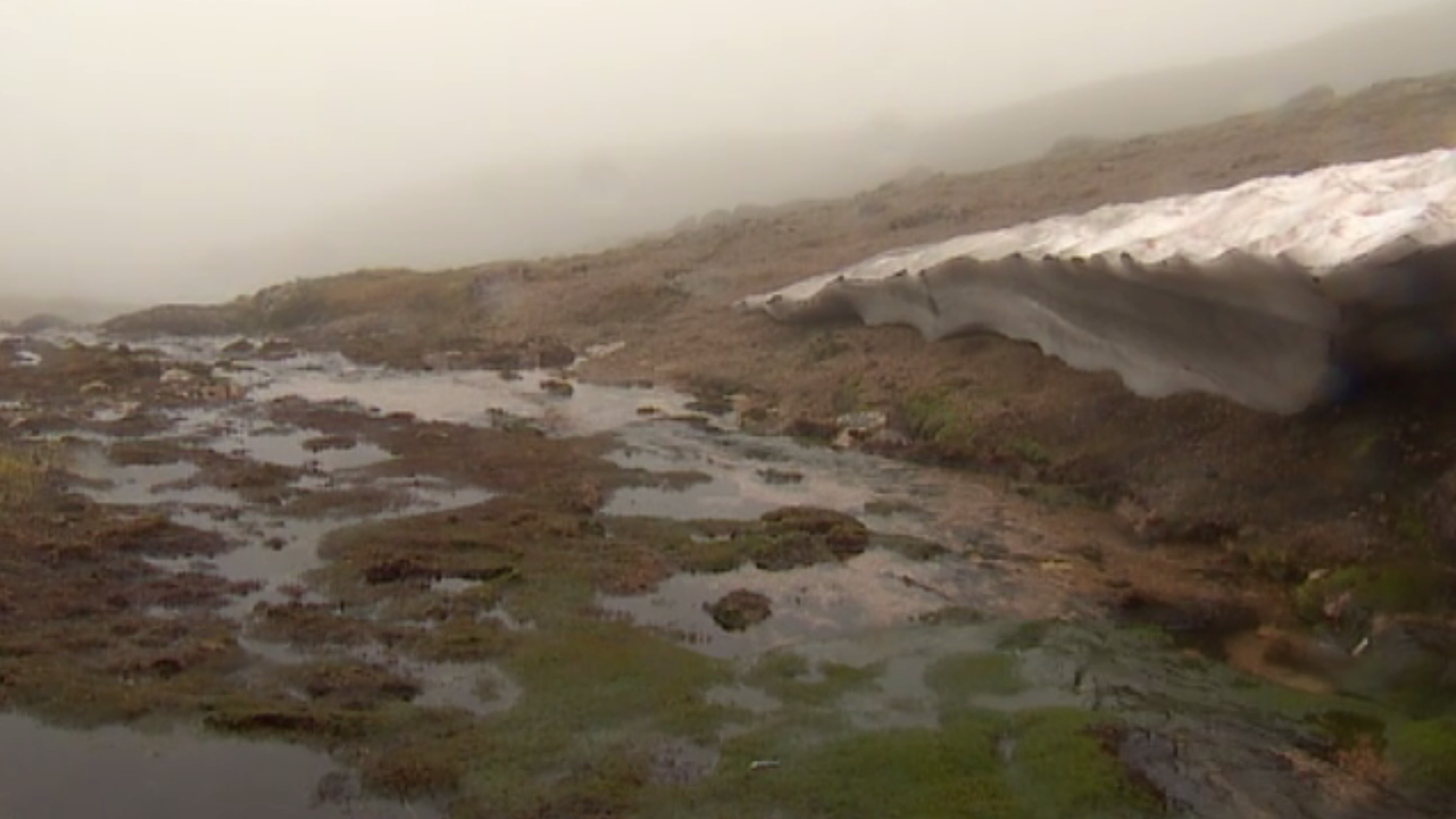
- Published2 June 2015
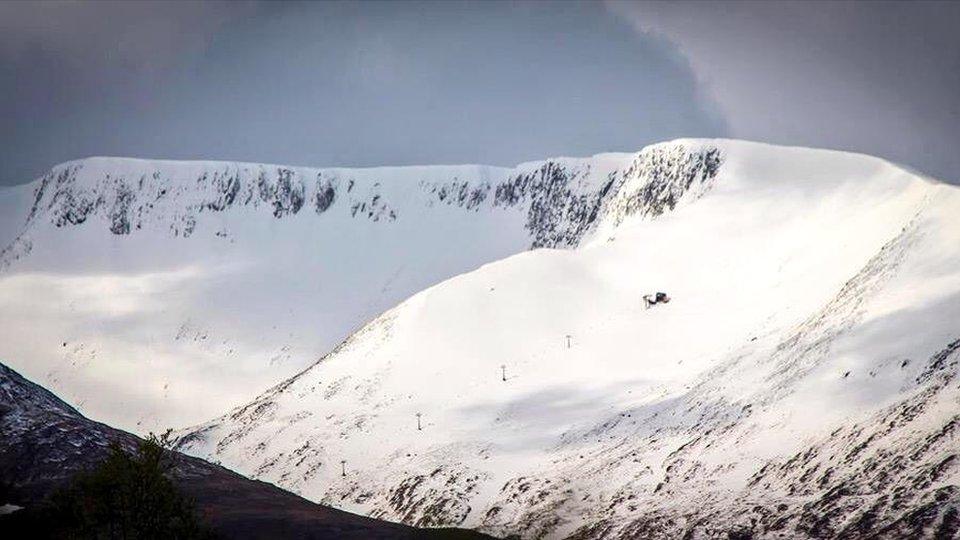
- Published23 March 2015
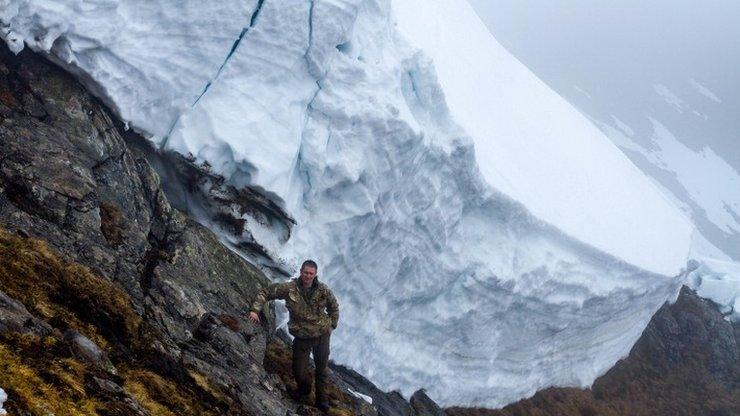
- Published23 September 2014
